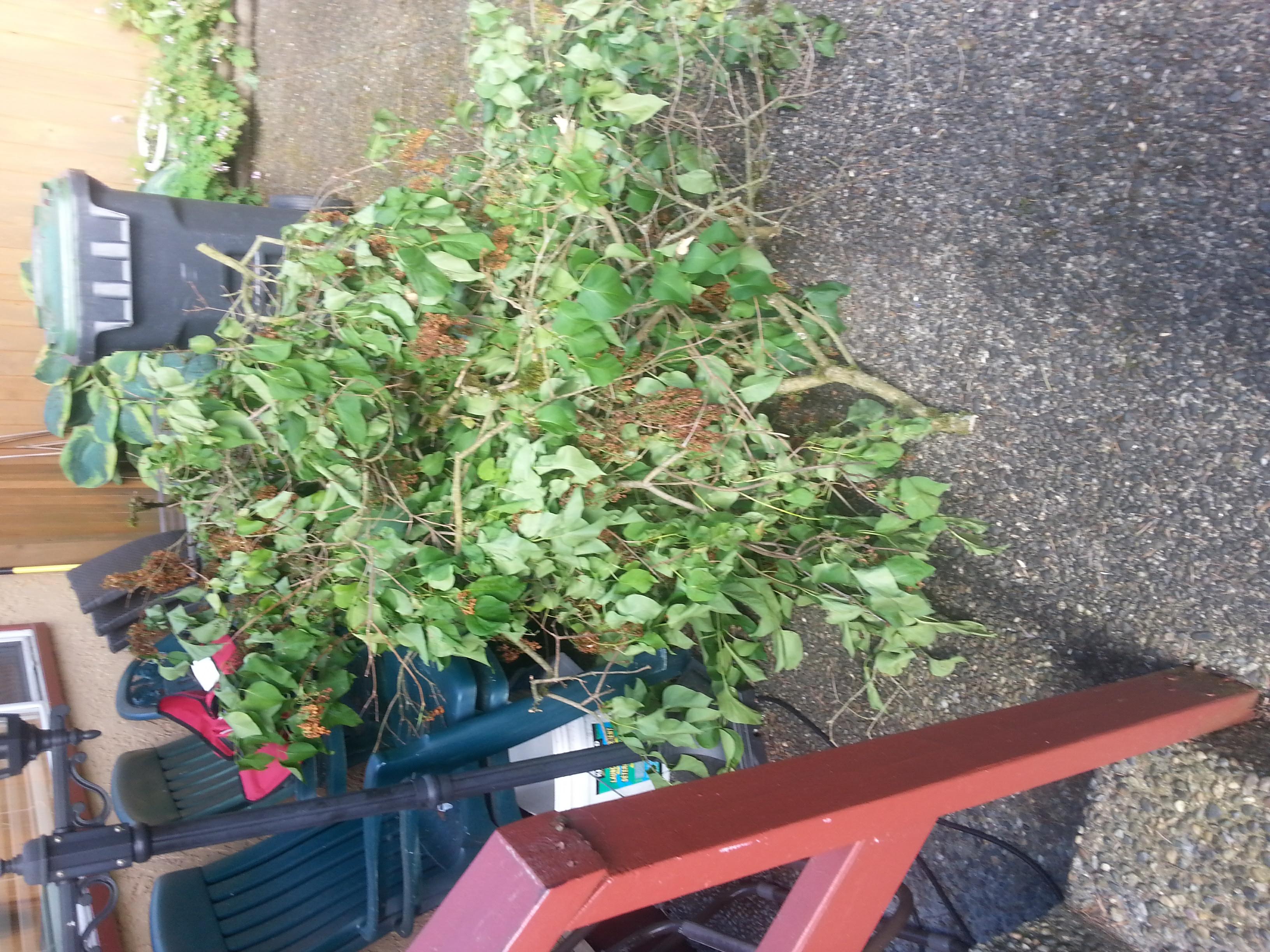Resiliency
One of the things I've learned is that one should never underestimate the profound resiliency of the human spirit, nor how swiftly things can change for the better, often overnight. I have a friend who I have talked about here who has been told he had Vascular Dementia and that there is nothing that can be done. He tells me that he may have perhaps 10 more years left, but the disease will get worse over time. He is not, at this time depressed and is in good spirits. We have had 3 other friends die from Alzheimer's but while I feel sad for my friend, he is feeling positive and he is still full of life and resiliency. l love the human spirit.
For those of you who don't know Vascular Dementia is a general term describing problems with reasoning, planning, judgment, memory and other thought processes caused by brain damage from impaired blood flow to your brain. You can develop vascular dementia after a stroke blocks an artery in your brain, which is what happened to my friend. He had a stroke which we all thought was minor, but it has lead to his current problem. I was curious and I did some research on what my friend can expect. My doctor explained to me that Vascular Dementia is totally preventable because it is caused by high blood pressure that is not treated so the high blood pressure can bring on the stroke.
This information below was developed by Dr. Barry Reisberg of New York University who developed a seven-stage system as a framework to understand the progression of this disease.
The rate of progression of the disease varies and my friend is not in Stage 2.
Stage 1– No Impairment
During this stage, there are no detectable memory problems. Forgetfulness can be brought on for a number of reasons including normal ageing, head injuries, vitamin deficiencies, medication side-effects, depression. Some of the causes are reversible that is why it is important for individuals to see their doctor to rule out other causes.
Stage 2-- Mild Decline
At this stage, the individual may still do well on memory tests and people close to the individual may not notice any significant changes. The individual is still able to function in his or her day-to-day life. Also, at this stage, memory loss can’t be easily differentiated from normal age-related forgetfulness. The individual is still able to work and live independently. He or she will likely be the first to notice changes that no one else can identify, including the physician.
Stage 3: Continued Mild Decline
People in this stage will begin to notice changes in their loved one. The individual will have difficulty on cognitive tests, and doctors will be able to detect a decline in functioning. Performance in demanding situations may weaken, and the individual may be unable to learn new skills.
Stage 4: Moderate Decline
During this stage, signs and symptoms of dementia become obvious. Thinking and reasoning issues become clearer, and new issues appear. Individuals in this stage often withdraw from participation in activities they previously enjoyed, like conversing with family.
Stage 5: Moderately Severe Decline
During this stage, individuals begin to need help with normal day to day activities. Individuals in this stage are able to bathe and go to the bathroom and are typically still able to recognize family members. They are also still able to recall their history, especially details about their youth.
Symptoms of Stage 5:
People in stage five may experience significant confusion. They often have an inability to recall simple details like their own phone number. They have difficulty dressing appropriately and require assistance in choosing the right clothes for the right season. They may have difficulty with remembering the time of day and identifying which season they are in. The person can also easily get lost since they may not remember their address or how to get home.
Stage 6: Severe Decline
Individuals in the sixth stage of Alzheimer’s disease need constant supervision, and if family members are not able to provide care, they will require professional caregivers. Individuals in this stage will require assistance and/or reminders with many of the activities of daily living (bathing, toileting, and dressing). They may also experience incontinence of bowel and bladder.
Stage 7: Very Severe Decline
This is the final stage of the disease, in which individuals are nearing the end. They eventually lose their ability to respond to environmental cues or communicate with others, and while they may utter words or phrases, they won’t have much meaning; they require assistance with all activities of daily living. In the final stage of the illness, individuals lose their ability to swallow. Individuals now require full-time, around the clock assistance with daily personal care. They have increasing difficulties communicating and they experience changes in physical abilities (walking, sitting, and eventually swallowing).

Articles from Royce Shook
View blog
I was sent this by one of my high school friends, I added to it and thought I would share · 1. · I w ...

Subjective ageing can impact an individual's behaviour and can influence how we behave, which can ha ...

My thanks to my cousin Irene for this and she received it from Karen · The telephone rang. · It was ...
You may be interested in these jobs
-
reservations supervisor
Found in: Talent CA 2 C2 - 12 hours ago
0883490 B.C. LTD. Cranbrook, CanadaEducation: Secondary (high) school graduation certificate · Experience: Experience an asset · Tasks · Perform same duties as workers supervised · Assist clients/guests with special needs · Co-ordinate, assign and review work · Establish work schedules and procedures and co-ordina ...
-
imam
Found in: Talent CA 2 C2 - 3 days ago
Bridges of Canada Inc. Donnacona, CanadaEducation: · Expérience: · Education · Bachelor's degree · Islamic studies · Tasks · Conduct religious services · Administer rites of faith such as marriages and funerals · Provide spiritual and moral guidance to members of a religious faith · Supervise, plan and administer pro ...
-
Student I
Found in: beBee S2 CA - 3 weeks ago
Fraser Valley Regional District Chilliwack, Canada Public Works & Operations, Sewer & Wastewater Services, Water ServicesStudent I (Utilities Aide)(up to 2 positions)(TIME-DURATION, full-time hours)Competition #2024-10 · March 22, 2024 · The Fraser Valley Regional District is in the unceded territories of 30 First Nations communities. We are a local government that delivers over 100 services to peo ...



Comments